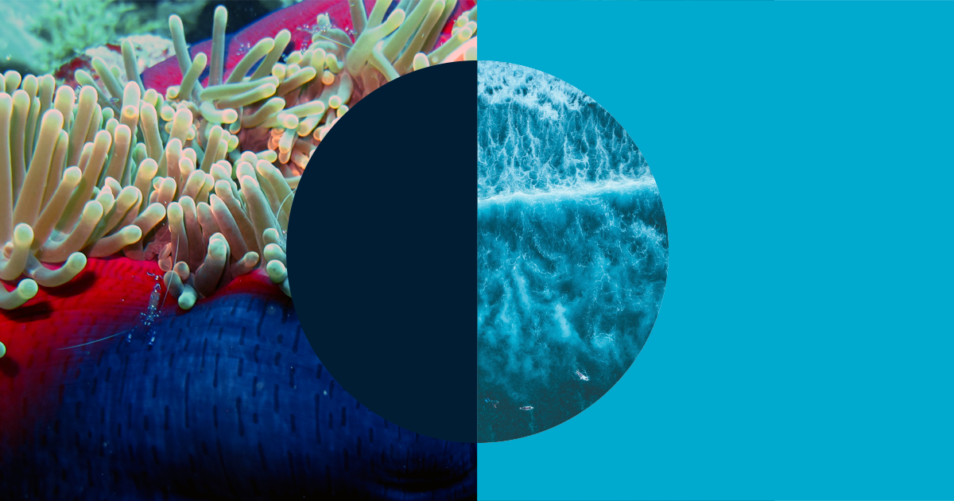
We’re celebrating World Oceans Day!
To celebrate World Oceans Day (WOD), 8 June, we asked for your creative ideas about the science and technology needed to ensure healthy and sustainable future oceans. Oh bouy, you delivered! We received a wave of incredible ideas. It was a tough choice for our judges.
Each of our competition winners will have their unique idea illustrated by Perth artist Campbell Whyte. Starting today, we are sharing the illustrations, and our ocean scientists will talk about each idea’s possibilities. So, let’s dive in!
Competition winners
Congratulations to our four winners. Each person will receive a digital copy of their illustration. Shell yeah!
Jessica Leitmanis
Create rubber from seaweed that can be used in to replace synthetic rubber component of car tyres. Addresses both marine plastic pollution from tyre dust and promotes healthy oceans through kelp farm ecosystems whilst drawing down carbon… Reducing climate related impacts on ocean life.
Simon Bunker
With my 8-year old son, Josh, we prototyped using machine learning with Google Teachable Machine to build a smart fishing boat. This would automatically avoid catching endangered fish, and stop catching allowed fish when it reaches a limit. We made a video to explain it.
David Abbott
Microbial fingerprinting of marine ecosystems to understand key microbes associated with healthy or poor reef and those transitioning one way or another for quick assessment of ecosystems.
Rita de Heer
Convert large superfluous still-seaworthy freighters into floating island arks to accompany gyre clean-up efforts, using onboard sustainable power plants to fuel living and research quarters, labs, pools and ponds for the rehabilitation of sea-creatures to arrest the ongoing losses to plastics.
Honourable mention
While we could only choose four winners, there was one more idea we wanted to float past you.
Yolanda Waters (extra points for positively ocean-y name) raised the important role that behavioural and social change has for the health of our oceans.
An app that aims to help individuals realize their impact on the ocean and the impact of the ocean on them would be beneficial in increasing marine stewardship and collective sense of responsibility. Something like a carbon footprint calculator but with the potential to be tailored to individual contexts and locations.
You can read more about what scientists from the Future Seas collaborative project have to say about the power of social change over on our ECOS blog.
Thank you to everyone who splashed into the comp and shared their ideas with us!
Why WOD?
The ocean covers more than two-thirds of our planet. It affects almost all aspects of our daily lives – from our weather and climate, through to our food and wellbeing. Our oceans are highly diverse with many unique components. Vast and mysterious abyssal canyons and seamounts, sprawling coral reefs and seagrass meadows, colourful playgrounds for fish and charismatic marine megafauna. Scientific research is essential to understanding our oceans, how they respond to pressures, and how they will continue to maintain life, culture and the economy in the future.

